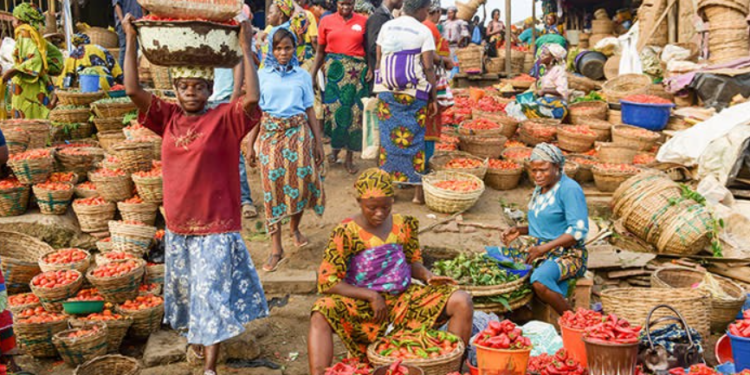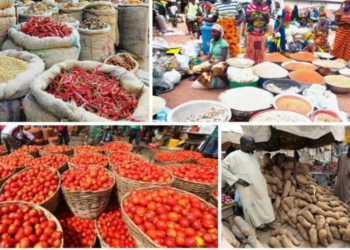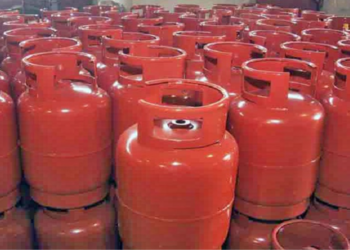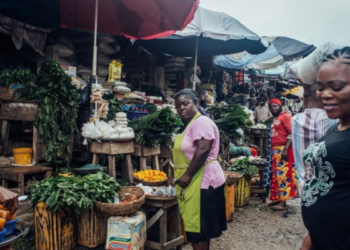Benue State recorded the most significant decline in food inflation nationwide in May 2025, falling to 22.0% year-on-year from 51.8% in April, even amid ongoing violence and killings in parts of the state.
According to the latest Consumer Price Index (CPI) report released by the National Bureau of Statistics (NBS) on Monday, the plunge represents a sharp 57.53% drop, the steepest recorded across the country.
Despite the moderation in year-on-year figures, food prices in Benue still rose by 4.1% month-on-month, pointing to persistent short-term supply pressures likely tied to local insecurity and logistical disruptions.
The state’s headline inflation stood at 25.9% year-on-year and 3.1% month-on-month, reflecting a broader cost-of-living challenge.
The NBS report was released amid renewed violence in Benue State, where coordinated attacks by gunmen over the weekend left about 200 people dead. Communities such as Yelewata were overrun, with homes burned and hundreds displaced in what survivors described as one of the deadliest episodes in recent months.
In response, President Bola Tinubu postponed a planned trip to Kaduna and announced he would visit Benue on Wednesday, June 18, to commiserate with victims’ families and assess the scale of destruction firsthand.
Borno, Niger struggle with soaring prices amid conflict, floods
- In contrast to Benue’s easing trend, Borno and Niger States posted some of the highest inflation rates in the country due to worsening insecurity and flooding. Borno reported a food inflation rate of 64.4% year-on-year, the highest nationwide, alongside a headline inflation rate of 38.9%. On a monthly basis, food prices in the state jumped 8.0%, underscoring the devastating impact of poor harvests, displacement, and disrupted supply chains.
- Niger State fared slightly better, with 30.3% year-on-year food inflation and a marginal 0.2% month-on-month increase. However, its headline inflation of 35.0% still places it among the most inflation-battered states in Nigeria.
What you should know
At the national level, Nigeria’s headline inflation dropped to 22.97% in May from 23.71% in April, following the rebasing of the CPI to a 2024 base year. This marks a decline from 33.95% recorded in May 2024. Month-on-month, inflation slowed to 1.53%, down from 1.86% in April.
- Food inflation nationally stood at 21.14% year-on-year in May, compared to 40.66% a year earlier. The NBS attributed the sharp decline primarily to the rebasing effect. Nonetheless, monthly food inflation edged up to 2.19%, driven by rising prices of staples such as yam, cassava flour, maize flour, sweet potatoes, fresh pepper, and ogbono.
- Urban inflation stood at 23.14% year-on-year, while rural inflation eased to 22.70%. Core inflation, which excludes volatile items like food and energy, dropped to 22.28% year-on-year, with a monthly rate of 1.10%.
- The main drivers of headline inflation remained food and non-alcoholic beverages, contributing 9.20 percentage points, followed by restaurants and accommodation services (2.97%), transport (2.45%), housing and utilities (1.93%), and education (1.42%).
- Bayelsa State recorded the highest month-on-month inflation at 9.11%, while Kaduna (-6.75%), Jigawa (-4.40%), and Edo (-2.94%) experienced the steepest declines.
- Borno, Bayelsa, and Taraba posted the highest annual food inflation rates at 64.36%, 39.85%, and 38.58%, respectively, while Katsina, Rivers, and Kwara saw the slowest increases. On a monthly basis, Bayelsa (12.68%), Cross River (11.15%), and Anambra (9.10%) led the rise in food costs, as Katsina (-5.42%), Jigawa (-4.02%), and Kaduna (-3.27%) saw declines.
While rebasing has helped ease annual inflation metrics, Nigerians continue to feel the pinch of rising prices month-on-month, especially in states plagued by conflict and flood.





















